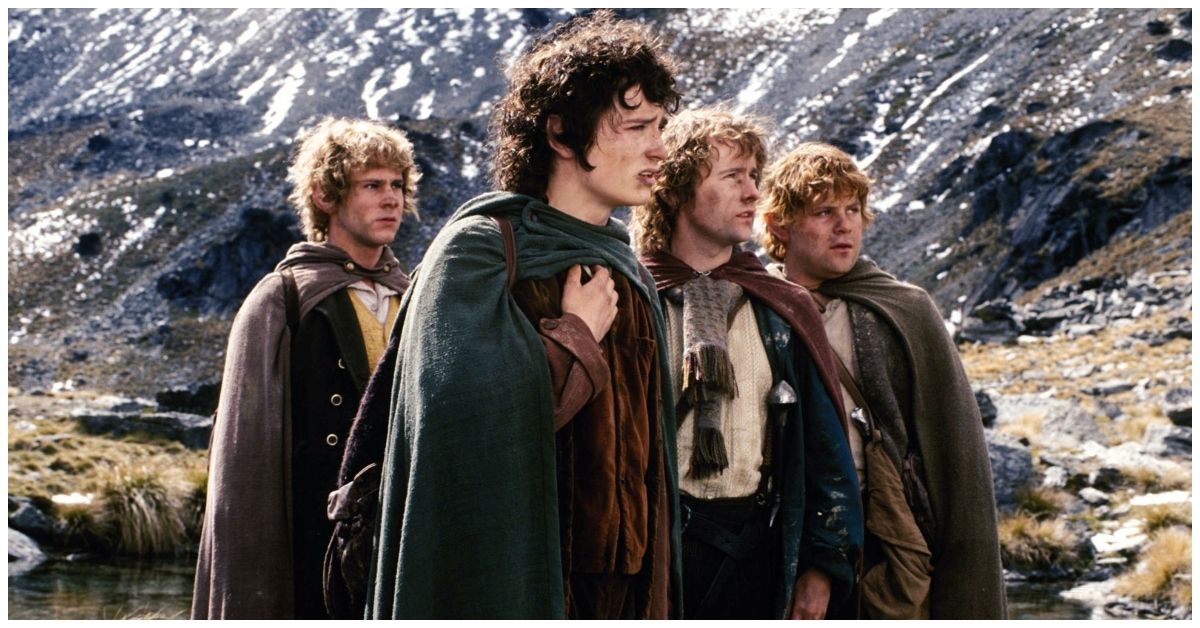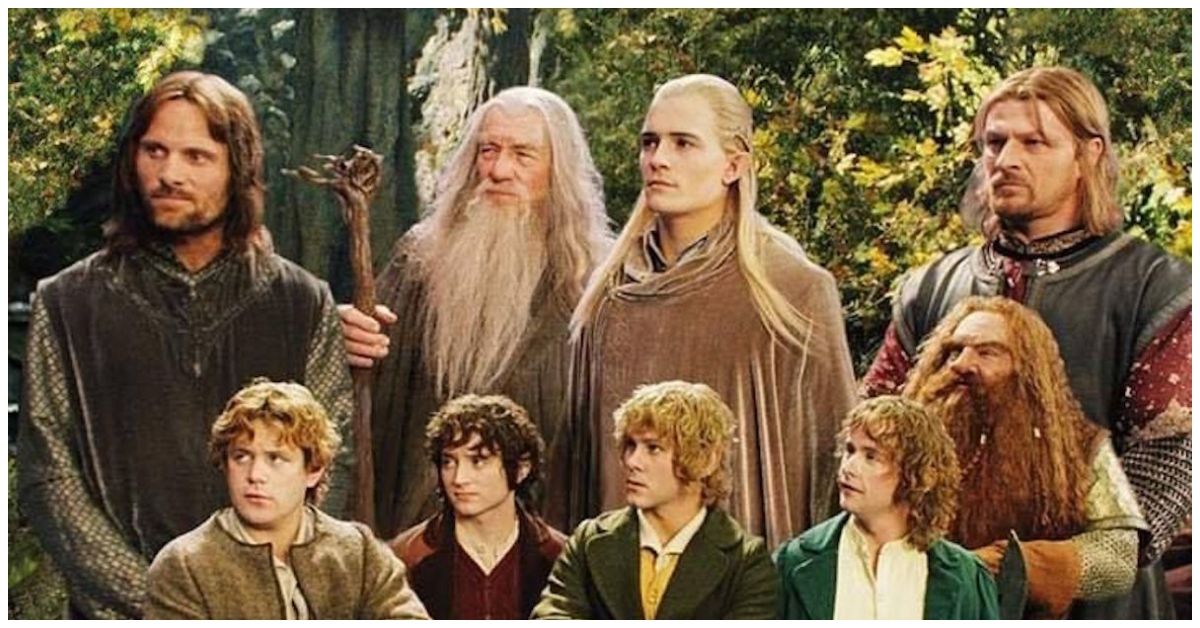Given the fact The Lord of the Rings has been enormously successful, filmmakers and fans alike have tried to figure out what exactly worked about Peter Jackson's adaptation of J.R.R. Tolkien's story of the same name. While the answer to this question depends on what angle you approach it from, Peter Jackson explained that there was ultimately one thing that really helped him figure the story out. And this very thing is what he claims make people fall in love with both the books and the movies.
The Trouble With Adapting J.R.R. Tolkien's Work
Upon the release of the final chapter of The Lord Of The Rings, The Return of the King, Peter Jackson sat down with the now-disgraced Charlie Rose to discuss making the trilogy. In their conversation, Peter mentioned how impossible it once was to adapt J.R.R. Tolkien's work for a live-action movie for the big screen.
"It hadn't been made because there was no way that you could put on film everything that Tolkien was describing," Peter Jackson said to Charlie Rose. "With a title and a property like Lord of the Rings, I think you have to be very careful that you don't make a disappointing film because so many people are passionate about the book. And if you're naming something 'Lord of the Rings', you've got a responsibility to deliver something that's deserving of that title. And you couldn't do it before the computer technology came in a few years ago."
While there was a number of key elements that Peter Jackson focused on when adapting three books into three movies, he found himself spending the most time with one factor. This is the part of The Lord of the Rings that Peter believes is why millions of people all around the world adore the story... the characters.
"How did you approach taking liberties with the story?" Charlie Rose asked Peter, referring to some of the differences between the books and the movies including the expansion of Liv Tyler's role of Arwen.
"The way that we approached the screenwriting... because that was the real nightmare of this project. The script-writing was the hardest thing that we ever did," Peter explained of the task that he, Fran Walsh, and Philipa Boyens collaborated on.
"First of all, we stripped it down to the bare minimum to find the spine of the story. We said, 'Okay, this is about a little hobbit called Frodo Baggins who takes a ring and throw it in the volcano at the end'. Everything that's not to do with Frodo taking the ring, we'll lose. Because Tolkien obviously went off on tangents in all directions. So, that kind of got rid of a lot of material that wasn't connected. And then we had to shape it into three movies which was kind of hard."
Peter went on to explain that he really wanted each of the three movies, The Fellowship of the Ring, The Two Towers, and The Return of the King, to be enjoyable standalone stories. However, he also knew that eventually all three of them would exist out in the public at once and therefore these three movies would be considered three parts of one big story.
"We had to sort of shape the arcs of the story individually for three movies and then as a much greater 10-hour or 11-hour long [story]," Peter described.
Because of this, moments had to be created for the movies that didn't exist in the book, such as the moment when Frodo tells Sam to 'leave' in The Return of the King.
"We also felt that we were making the films for people who read the books ten years ago, not ten weeks ago," Peter said, momentarily confusing Charlie Rose. "We must make sure that we have something that everybody remembers from the experience of reading this book."
Essentially, Peter was saying that the people who read the books ten years ago have less interest in the detail of each moment as opposed to what each moment represents or made them feel. So it didn't matter if Aragorn was standing next to a luscious waterfall for a moment, or precisely how he said what he said, what mattered was the meaning of what he said and where he said it.
The Characters Were The Secret Ingredient
Ultimately, this topic ended up with what precisely Peter Jackson feels is the most important element of J.R.R. Tolkien's stories.
"I'll tell you what the key thing with Tolkien is. And we did spend some time, obviously, at the very beginning thinking, 'Okay, we're making these films, what is it about the books that people have loved for forty/fifty years?' There's a secret to it. There's like a key to it. And we wanted to know what that key was. And the one thing that we realized is that even though Tolkien has the battles, and he has the monsters, and he has all the fantastical elements, what people love about those books and what draws them back to read them over-and-over again are the characters. It's the characters. it's the hobbits. It's the courage. It's the bravery. It's the friendship. It's the characters." Peter described.
This gave Peter, Fran, and Philipa, a real strong sense at the very beginning of writing these stories about what they should be focused on. At the end of the day, they always came back to the characters and this is what made their movies so special. After all, it's precisely what made Tolkien's books so beloved.


